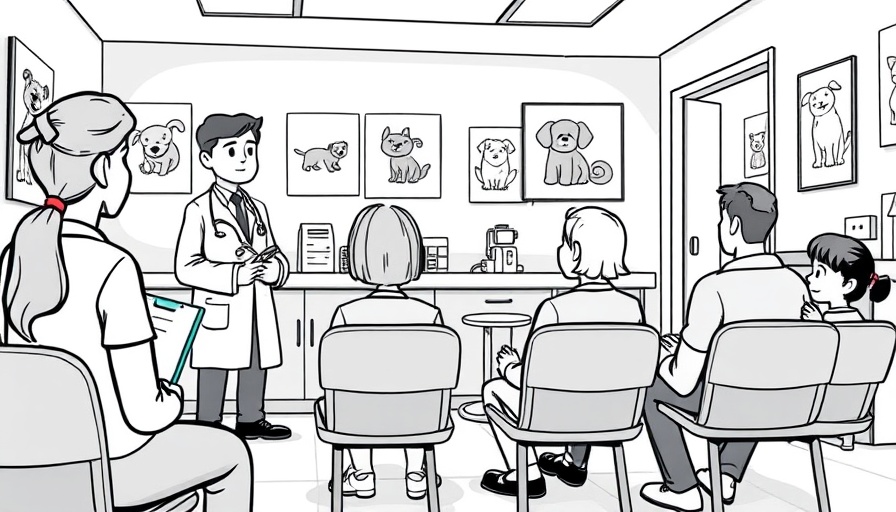
Understanding the Trust Factor in Veterinary Care
Trust is a foundational element of any successful practice, particularly in veterinary care where compassion and expertise converge. Clients not only seek expert knowledge, but they also look for assurance that their beloved pets are being cared for with respect and professionalism. This emotional connection can greatly impact client retention and referrals, making trust-building essential for veterinary practices.
Creating a Trustworthy Environment for Clients
Veterinary clinic owners and managers must work diligently to create an environment that fosters trust. This includes hiring knowledgeable and empathetic staff who are well-trained in both animal care and client interaction. A welcoming atmosphere, whether through the reception area’s comfort or staff members’ demeanor, plays a crucial role in establishing that trust. Studies show that a warm greeting and attentive listening can significantly enhance client perceptions of care.
The Role of Transparency in Building Trust
Transparency is another vital component. Providing clear information about treatment options, costs, and unexpected issues can help remove barriers between vets and their clients. When clients understand the reasons for various procedures, they are more likely to trust the veterinarian’s recommendations. Additionally, sharing success stories and client testimonials can further reinforce this transparency, illustrating how veterinary practice has positively impacted other pet owners.
Utilizing Technology to Enhance Trust
Embracing technology can also play a pivotal role in building trust. Client communication management systems, such as appointment reminders and health updates, keep clients engaged and informed. Advanced client portals that allow pet owners to access their pet's health records, schedule appointments, and receive timely reminders can enhance the client experience and promote loyalty. Moreover, telemedicine options allow clinics to remain connected with clients even during unforeseen circumstances, showcasing the practice's commitment to pet care.
Community Engagement: A Trust-Building Strategy
Participating in or sponsoring local events not only promotes your practice but also demonstrates a commitment to the community. Engaging in local pet events, educational workshops, or charity drives fosters goodwill and enhances public perception. As veterinary professionals, showcasing community involvement not only builds trust but allows potential clients to see your clinic as a pillar of support within the community.
Gathering Feedback to Strengthen Client Relationships
Regularly seeking feedback from clients can help veterinary practices understand areas needing improvement, enhancing both the quality of care and the client experience. Surveys following appointments are an effective method to gather insights that can inform organizational strategies. Positive feedback helps strengthen existing client relationships, while constructive criticism provides invaluable opportunities for growth.
Maintaining Long-Term Relationships through Follow-Up
Building long-term relationships involves consistent follow-up after visits. Whether through personal phone calls or automated emails, checking in on pets’ progress and satisfaction with services helps clients feel valued and encourages ongoing loyalty. A simple gesture, like sending a birthday card for a pet, can leave a lasting impression and fortify the bond of trust between the clinic and the pet owner.
Future Trends: The Ongoing Importance of Trust
As the veterinary landscape continues to evolve, the emphasis on trust in veterinary practice will only increase. Tech-savvy clients expect convenience and engagement, making it essential for clinics to innovate while maintaining personalized care. With rising competition, clinics must prioritize building trust not only as a tactic for enhancing profitability but as a cornerstone of quality veterinary service.
For veterinary clinic owners, fostering a culture of trust and transparency can create a ripple effect, enhancing operational efficiency, attracting more clients, and ultimately ensuring the long-term success of their practice. By prioritizing trust, clinics navigate the complexities of pet care with both professionalism and compassion, leading to happier clients and healthier pets.
 Add Row
Add Row  Add
Add 

 Add Row
Add Row  Add Element
Add Element 




Write A Comment